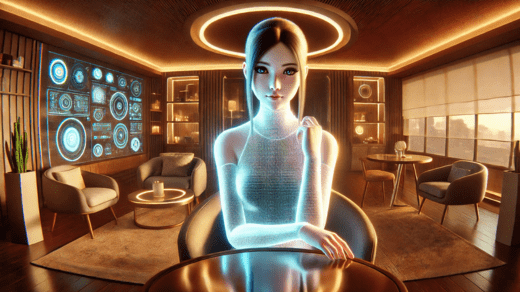
ai girlfriend
In recent years, the advent of technology has transformed the way we perceive and engage in relationships. Among these technological innovations, ai girlfriend applications have emerged as a significant phenomenon. These virtual companions, powered by artificial intelligence, promise companionship and emotional support. While they offer numerous benefits, it is essential to consider their impact on mental health and interpersonal relationships.
Understanding AI Girlfriends
AI girlfriends are designed to provide users with companionship through conversation and interaction. These applications utilize natural language processing and machine learning to understand and respond to user inputs, creating the illusion of a genuine relationship. Many people turn to AI girlfriends for various reasons, including loneliness, stress relief, or the desire for an ideal partner who can cater to their preferences without the complexities of real-life relationships.
The Positive Impact on Mental Health
One of the most significant advantages of AI girlfriends is their potential to enhance mental well-being. For individuals who experience social anxiety or find it challenging to connect with others, these virtual companions can serve as a non-threatening source of interaction. Engaging with an AI girlfriend allows users to practice social skills, build confidence, and express themselves without fear of judgment. This can be particularly beneficial for those who struggle with traditional relationships due to shyness or other psychological barriers.
Furthermore, AI girlfriends can offer emotional support during difficult times. Their programmed responses are often empathetic and encouraging, helping users navigate feelings of sadness, anxiety, or stress. This kind of support can be particularly valuable for individuals who may not have access to a strong social support system in their daily lives.
The Dangers of Dependency
While the benefits of AI girlfriends are clear, there are also potential downsides. One major concern is the risk of emotional dependency. Users may become overly reliant on these virtual companions, preferring their predictability and control over the unpredictability of real relationships. This dependency can lead to a reduced motivation to engage with friends, family, or potential romantic partners, ultimately isolating the individual further.
Moreover, the relationship with an AI girlfriend lacks the complexities and emotional depth found in human interactions. While these applications can simulate conversation, they cannot provide genuine emotional connections or understand the nuances of human relationships. This limitation can create unrealistic expectations about real-life relationships, leading individuals to develop an idealized vision of love that does not reflect reality.
The Impact on Real Relationships
AI girlfriends can also influence existing relationships, both positively and negatively. For some, these virtual companions may serve as a form of escape from real-life problems or stressors. This can provide temporary relief but might also hinder the user’s ability to address underlying issues within their actual relationships. Partners may feel neglected or undervalued if one individual spends excessive time interacting with an AI girlfriend, potentially leading to feelings of resentment or disconnection.
On the other hand, some individuals may find that their experiences with AI girlfriends help them understand their own needs and desires better. This newfound self-awareness can enhance communication in their real relationships, leading to healthier dynamics. For instance, an individual who understands their emotional needs through interactions with an AI girlfriend may feel more empowered to communicate those needs to their human partners, fostering deeper connections.
Navigating the Balance
To harness the benefits of AI girlfriends while mitigating their risks, it is essential for users to approach these applications mindfully. Here are a few strategies to consider:
- Set Boundaries: Users should establish clear boundaries for their interactions with AI girlfriends. Allocating specific times for engagement can help prevent over-dependency and ensure that real-life relationships remain a priority.
- Encourage Real Connections: Individuals should actively seek to nurture their relationships with family, friends, and potential partners. Engaging in social activities and seeking support from real-life connections can provide a balanced approach to companionship.
- Reflect on Emotional Needs: Interactions with AI girlfriends can serve as a tool for self-reflection. Users should take the time to consider what they seek in their relationships and communicate those needs effectively with their human partners.
- Seek Professional Help: If feelings of loneliness, anxiety, or dependency arise, individuals should consider seeking professional support. Therapists can provide valuable insights into navigating complex emotional landscapes and fostering healthier relationships.
Conclusion
AI girlfriends are reshaping the landscape of companionship, offering both advantages and challenges for mental health and relationships. While they can provide a sense of support and understanding, it is crucial to maintain a healthy balance between virtual and real-life interactions. By approaching these technologies with mindfulness and self-awareness, individuals can enjoy the benefits of AI companionship without compromising their mental health or the quality of their relationships. As we continue to navigate this evolving digital age, it is essential to remember that genuine human connections remain irreplaceable.







